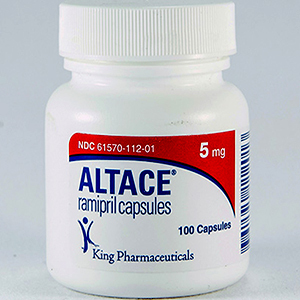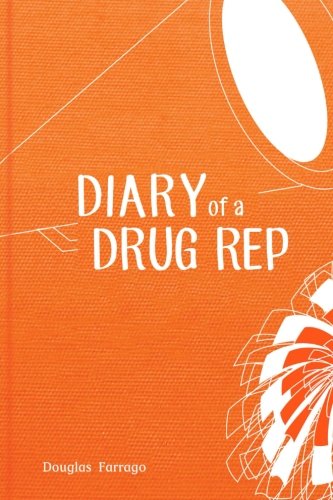Drug Prices, Thought Leaders, Fragile Reputations and PCP Burnout.

If you are a specialist with a reasonably good reputation in your region, you may be approached by a pharmaceutical representative to be a “thought leader.” The offer will be flattering and provide additional cash on the side. You will go to training sessions at some relatively luxurious resorts. After your training, you will be asked to give talks to other groups of doctors. You will be paid nicely for these talks and receive prestige-enhancing exposure to referring physicians.
Should you take the offer? Let’s talk….
A bit more than fifteen years ago, the class of drugs known as ACE Inhibitors were generic, cheap, and important in the management of a multitude of life-threatening conditions.
The one exception was the drug Altace (Brand name for Ramipril). Altace was still branded and ridiculously expensive. It was not at all superior to other ACE Inhibitors, though it was heavily promoted as such by its manufacturer.
As part of its strategy, the company heavily recruited local Cardiologists, sent them to luxurious “training sessions” and then paid them high speaker fees to promote the drug, claiming all sorts of advantages over drugs like Lisinopril, Enalapril and others. Remember, these generic alternatives were still highly effective and affordable. By all criteria, the generics were “just as good.” Altace was not better.
Yet, select Cardiologists in every town shamelessly pushed the drug. When seeing our patients, they would stop drugs like Lisinopril and give them samples of Altace, telling them to “Ask your doctor for a prescription because this is a much better drug.” Since these Cardiologists were highly respected by their patients, these words carried weight.
Why did these Cardiologists leave the prescriptions to the Primary Care Doctors (PCP’s)?
Prescribing Altace was not always easy. Insurance drug plans rightfully declined this more expensive alternative which offered no extra benefits. If the company did actually allow the prescription, it was covered at a much higher tier than the appropriate generic option.
PCP’s often describe what they call the “specialist dump,” meaning another specialist has offloaded nonsense painful work onto the shoulders of the PCP. This was the ultimate “specialist dump.”
You can imagine the scene that follows. The patient shows up in their primary care offices, asking for a prescription for Altace because “Dr. X told me it was way better than the drug you had me on!” Most PCP’s do not start their day, wondering how they can make patients angrier at them. So they write the script, grumbling because they feel like they’ve been “thrown under the bus” by the specialist.
Without thinking, the PCP has walked into a trap. Next begins the terrible prior authorization process. The Cardiologist’s ego trip as a paid “thought leader” has undermined the PCP’s reputation and created more work at the expense of the PCP.
The drug is expensive. The insurance company wants to know “WHY are you switching to an expensive alternative that is no better than existing generics?” There is no answer, of course. This is a simple money grab. The insurance company is clearly in the right.
Sometimes, however, the drug is covered.. “HA!” you say. “I’m DONE with that battle!”
Wrong, again! Altace was a higher tiered drug. That means the drug copay goes up…sometimes by a lot! So, the patient demands you make a copay reduction request.
A copay reduction request? Is there really such a creature? I’ve heard of such things. I mean, the Loch Ness Monster, BigFoot and helpful Dermatologists are also said to exist. But, let’s face it: You are entering into truly “Mission Impossible” territory.
After a few of these encounters, I tried to funnel my patients to the competing Cardiology group. This proved difficult to actually accomplish.
Over time, in face-to-face visits, I described the issues with the drugs. I discussed the fees companies paid to have “thought leaders” promote expensive drugs with zero advantages. I revealed the data, available on sites like ProPublica, showing the payments going to their specific Cardiologist. Yes, the site listed actual names. Even local newspapers picked up on the higher paid names on the site.
Some of the payments were surprisingly high. Over time, local patients and physicians figured it out. There is a prestige, of sorts, to being referred to as “a thought leader.” That prestige is short-lived. Patients and the surrounding medical community are not dumb.
To this day, long after the Cardiologist’s retirement, patients reminisce about the doctor’s prescribing habits: “He never met a more expensive drug he didn’t want to switch you to,” they say, laughing at it all. After I retire, I hope my legacy is a bit better than that.
Then, Altace went generic. The company dinners, featuring speeches from “thought leaders,” suddenly ceased.
If Altace was, in fact, so much better, this would be the next sentence:
Despite resistance, the stoic Cardiologists continued switching patients to Altace because it was a superior drug….
HA!!! Okay… That last sentence was totally false.
Altace prescriptions came to a total screeching halt. But, the tarnished reputation of the drug’s thought leaders lived on.
So, when you get the offer to be a thought leader, politely decline. Your reputation is more fragile than you think. Don’t blow it.
(Editor’s Note: If you want a trip into the world back in the early 2000s then read my book Diary of a Drug Rep)










Sheeeoooot, I was too busy to be a “thought leader” but as a newly minted FP over 30 years ago I was recruited to do just that. I declined as I had a practice to deal with. So glad to be retired.